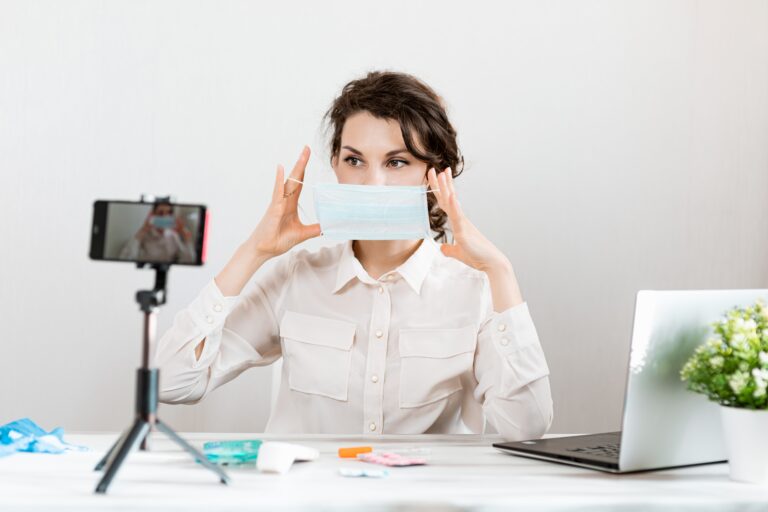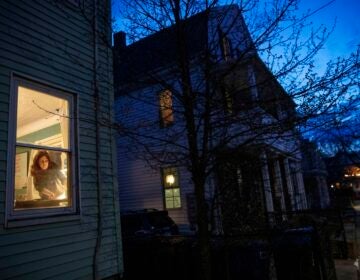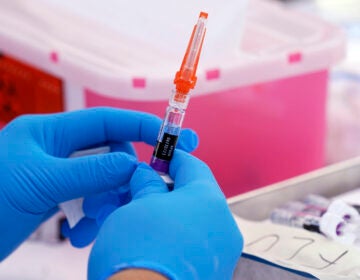Should cities pay influencers to help stop the spread of COVID-19?
The question is not just about money. It’s also about getting the word out to people who need to hear it and might not get it elsewhere.
Listen 7:50
Should cities pay influencers to help stop the spread of COVID-19? The question is not just about money. It’s also about getting the word out to people who need to hear it. (timofeev/ Big Stock Photo)
This story is from The Pulse, a weekly health and science podcast.
Subscribe on Apple Podcasts, Stitcher or wherever you get your podcasts.
At the start of the coronavirus pandemic a few months ago, big cities like Chicago, New Orleans, Boston, and Philadelphia worked with local celebrities, athletes and influencers, asking them to tell their followers to stay home and wash their hands.
We're with you, @ChicagosMayor ✊#WeAreNotPlaying | #StayHomeSaveLives pic.twitter.com/TtacJ5GiNN
— Chicago Bulls (@chicagobulls) April 10, 2020
In Philadelphia, City Council paid a total of $10,000 to local social media stars for their posts. It was less than one-tenth of a larger COVID 19 advertising budget.
Companies, even big ones like Coca-Cola and Nike, have advertised by using the services of influencers for a while. But some people wonder whether governments should pay during a pandemic for Instagram posts about hand washing?
“It was ridiculous that they would even accept money from the city to put out information that pretty much is saving all of our lives,” said Ernest Owens, writer-at-large at Philadelphia Magazine.
He wrote an opinion piece about this, and he has nothing against influencers — he knows it takes work to develop a following online. But Owens questions using taxpayer funds for influencer messages during a pandemic.
“Where’s the humanity, and where is the ability to say, ‘You know what, it doesn’t cost me anything to make this post, it doesn’t hurt to just help the city out and just help our society out, by spreading this awareness?’”
Owens pointed out there are lots of people promoting local businesses that have been hit hard, or helping others with groceries, volunteering at food pantries, all without getting paid. So he questioned why Philadelphia, a city that has to consider cutting funds for housing and the arts, should pay influencers for helping other people out?
Joe Grace, communications director for Philadelphia City Council President Darrell Clarke, said they stand by their campaign because the social media posts by local influencers generated more than 200,000 impressions.
“We believe it made a difference and reached young people who weren’t likely watching the city’s daily briefing on public access TV.”
He added that other celebrities like local athletes spread the message for free, and that all the money spent on the campaign is detailed online.
Subscribe to The Pulse
Other cities have faced this question, too.
The local government in Charlotte, North Carolina, proposed paying social media influencers as part of its COVID-19 outreach plan. A local news site, the Charlotte Agenda, reported that people erupted with jokes and questions about the idea. So many social media users and community leaders offered to spread COVID -19 prevention messages for free, local officials eventually backed away from paying influencers.
Danica Kombol asks this instead: Why wouldn’t you pay influencers?
She’s the CEO of Everywhere Agency, a marketing company based in Atlanta that connects businesses with influencers.
“Do we complain if the city of Philadelphia pays for a billboard? Probably not. Do we complain if the city of Philadelphia paid to have posters printed? Probably not. Did they do ad buys on a website, do we complain about that? Probably not. Influencers are just another communications vehicle.”
Kombol has worked with local governments and health organizations on campaigns about vaccines and cancer. She said they should embrace influencer marketing.
“How many conversations have you had recently about how to stay safe during … the pandemic? And have you only gotten that message from your doctors? No, you’ve gotten that message from people you know, so why not arm influencers with the correct message about public health?”
Especially with public health campaigns, she said, you want to spread a consistent and well thought-out message; you want people to say very specific things.
“You’re asking for them to share it on their carefully curated channels, so again that sounds more like a transaction than a favor to me.”
It comes down to whether you see public health messages as transactions, like marketing, or as so important to the greater good that people should spread them on their platforms without getting paid.
Gynecologist Karen Tang, who is based in Philadelphia for Axia Women’s Health, spreads health information for free on social media. She is relatively new to this, but already has a few thousand followers on Instagram and Tik Tok.
@karentangmd Learn their names: Anarcha, Lucy, Betsey, ##henriettalacks, and countless black women throughout our history. ##racialjustice ##gynecology ##obgyn ##premed
♬ Childish Gambino - This Is America / Post Malone - Congratulations - carneyval_
“The way I’ve been recently thinking about social media and its use with physicians and health care professionals is that social media is now kind of the frontier of public health messaging,” she said.
Tang uses her platform to talk about things like COVID-19, the health impacts of systemic racism, and testicular cancer. She does this while working full time and raising three children.
“I try and fit it in where I’m able to, it’s almost become my hobby.”
She said doctors on social media are generally wary of getting paid for posts, “wanting to not dilute their message or make people dubious of their message by making too many paid (posts), like here’s me holding a brand of candy.”
Working with influencers can be important when you’re trying to reach specific groups with a message.
Endocrinologist Sherita Golden at Johns Hopkins University has worked on public health campaigns with local celebrities in Baltimore, at churches, and the NAACP. For example, she said, when health providers try to reach the African American community, who the message comes from, like a trusted figure or a local celebrity, can make a difference because there is still not complete trust.
There’s a long history of racism and unequal treatment in medicine. Doctors experimented on enslaved women, did surgeries on them without consent. That also happened to other vulnerable groups, like people in prison and people with disabilities.
“It’s resulted in a mistrust between certain vulnerable communities and the health care system,” Golden said. “That’s why it’s really important for health care systems to partner with those key members in the community who are seen as trusted members.”
But as to whether those trusted messengers should be paid, she is not sure.
“I decided that when I became a physician that I would use that platform to really help advance the messages for my community. People have sometimes tried to pay me. I don’t accept payment for that,” she said.
“Each of us in life are given a platform,” Golden said, “and then it is up to us to decide how we’re going to use that platform.”
WHYY is your source for fact-based, in-depth journalism and information. As a nonprofit organization, we rely on financial support from readers like you. Please give today.





![CoronavirusPandemic_1024x512[1]](https://whyy.org/wp-content/uploads/2020/03/CoronavirusPandemic_1024x5121-300x150.jpg)


